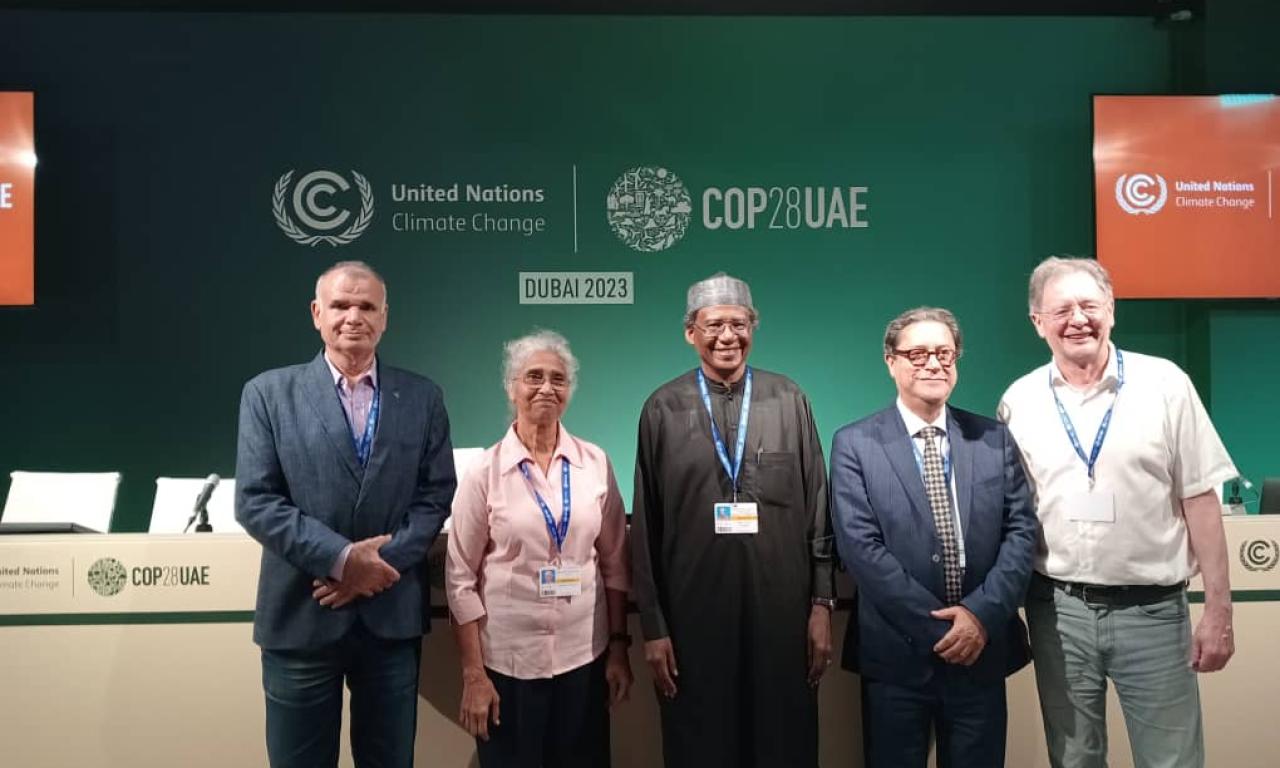
- WorldFish, ICARDA, and WOTR unveiled pioneering climate-smart strategies designed to strengthen aquaculture in arid regions during an official side event on the margins of COP28.
- CGIAR partners delved into the intricate ramifications of climate change and the adverse greenhouse gas emissions linked to conventional aquaculture and agriculture practices amidst water scarcity and escalating temperatures.
- A call for action was ignited to enhance the dissemination of effective country-specific models, underscoring the promise of inventive climate solutions like genetics improvement, research, and development to herald a fresh era of sustainability in the aquaculture and agriculture food systems.
Pioneering climate-smart solutions aimed at bolstering fish farming in arid lands and enhancing the resilience of communities facing the challenges of climate change, were presented by WorldFish, ICARDA, and WOTR, at the 28th session of the UN Climate Change Conference in Dubai (COP28) recently in a side event titled “Cultivating Resilience: Communities, Fish, and Drylands. The side event panelists delved deep into the multifaceted implications of climate change, shedding light on the detrimental greenhouse gas emissions associated with traditional farming systems.
WorldFish explored the potential of climate-smart solutions such as Integrated Aquaculture-Agriculture (IAA) and Aquaponics in enhancing productivity and sustainability in the face of environmental challenges. “Aquaculture contributes less than 5% of the emissions associated with food production. WorldFish’s R&D have demonstrably catalyzed climate adaptation and mitigation opportunities, particularly in low- and middle-income countries, notably in Africa,” said Baba Yusuf Abubakar, Board Chair of WorldFish.
Ahmed Nasr-Allah, Country Director of WorldFish – Egypt, emphasized the organization’s steadfast commitment to innovation in aquaculture and fisheries, highlighting the increasing significance of fish farming for global food security. With over 50% of the global fish supply now originating from aquaculture, Nasr-Allah underscored the pivotal role of this industry in meeting the world's growing demand for nutritious and sustainable food sources.
Innovation in a Changing Climate
The discussion also brought to the forefront the challenges confronting farming in arid and dryland areas. Aly Abosabaa, the Director General of the International Centre for Agricultural Research in the Dry Areas (ICARDA), emphasized the urgent need for innovative thinking in the face of water scarcity and rising temperatures. He stressed the importance of amalgamating innovative technologies for land management and fish farming into a cohesive system, particularly in the context of drylands’ significant contribution to global food production.
The event culminated in a host of recommendations aimed at mitigating the impact of climate change and optimizing the benefits of climate-smart systems through the active involvement of local communities, small-scale farmers, and fisheries. Marcella D'Souza, Director of WOTR (Watershed Organisation Trust), underlined the critical importance of cooperation among organizations, governments, and the private sector to achieve sustainable community objectives.
The event emphasized the need to bolster the exchange of successful country-level models, highlighting the potential of innovative climate solutions such as genetic improvement, research, and development to usher in a new era of sustainability in the blue and green industries.
This event not only set the stage for the formulation of a policy framework aligned with the major outputs of COP28 but also fostered collaborative dialogue on pressing climate-related issues to pave the way for a sustainable and resilient future for all.
